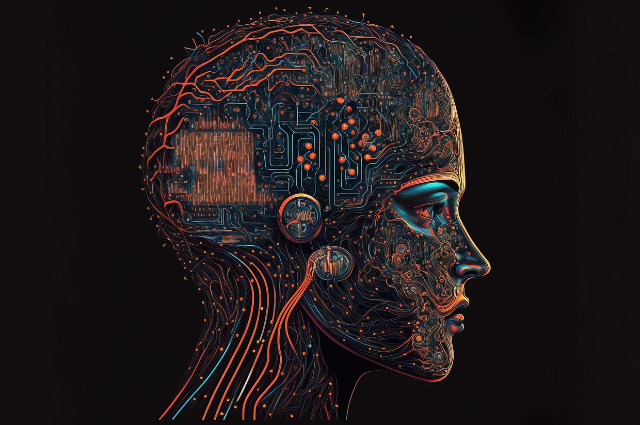
As technology is growing rapidly, Artificial Intelligence (AI) is becoming a transformative tool, which is changing the way we work, but it's also causing concern, because it could replace jobs in the global market. Recently, a new study by Microsoft says that while AI can help people work faster and better, it also puts some professions at risk, especially those that involve routine tasks.
“Our research shows that AI supports many tasks, those involving research, writing, and communication, but does not indicate it can fully perform any single occupation”. Kiran Tomlinson, lead author, Microsoft Research.
As AI becomes capable of doing things that humans can do, the question is raised: if some jobs will be lost, which jobs and how soon?
Understanding Microsoft Study
Microsoft worked with OpenAI and other tech researchers to study how AI might affect different jobs. They used powerful tools like GPT (Generative Pre-trained Transformer) to see how much AI can help with, take over, or completely do tasks in different fields.
By analyzing over 800 occupations listed by the U.S. Bureau of Labor Statistics, it classified how easily AI can take over the work. The goal was not to predict immediate job losses but to understand which might change a lot shortly.
“Microsoft analysed ‘200,000 anonymized conversations from Bing Copilot, finding that users most seek help with information gathering and writing.”
Jobs at High Risk of Disappearing
AI creates new opportunities, but some professions can face the risk of elimination. Like Data Entry jobs are easy to replace with technology. AI tools are capable of scanning, writing, and inputting information with errors. Tools like Optical Character Recognition (OCR) and machine learning can make these tasks faster, cheaper, and more accurate.
On the other hand, it's risky for Telemarketers and customer support representatives, too. As a telemarketer, AI can make sales calls, answer questions, and change pitch according to customer reactions. Unlike people, AI doesn't need a break, salary, or training. As customer service representatives, chatbots and AI voice systems have drastically improved in understanding and answering questions. Now, many companies are using them to reply to common customer queries.
As proofreaders and copy editors, tools like Grammarly and other AI editors are built into word processors and can now check grammar, suggest better sentence structures, and improve style and tone. Human editors are still better at understanding context and basic proofreading.
Augmentation, Not Elimination Jobs
Job roles like content writers, teachers, trainers, and software developers will probably not disappear but will change significantly. AI will serve as a tool to help humans do their jobs better, rather than replace them completely.
For journalists and content writers, AI can generate new summaries, articles, and creative writings, which will lack true human judgment, cultural context, and emotional intelligence. Writers will still be needed to guide narratives, verify facts, and maintain fair standards, but writing tasks may be handled by AI.
Even software developers who built AI can be affected by it. Tools like GitHub Copilot can write code based on natural language prompts, which means developers will spend less time writing repetitive code and more time on architecture, innovation, and solving problems.
Teachers are still very important. AI can assist in personalized education, grading papers automatically, and virtual classrooms. But still, teachers inspiring, guiding, and mentoring students can't be replaced. Their jobs will change with AI, but it won't vanish.
Safe Jobs For Now
Some jobs that are safe for now rely on physical presence, interpersonal relationships, and unpredictable scenarios. Like, for healthcare workers, AI can assist in diagnosing diseases or doing surgery, but caring for people in nursing and mental health needs human empathy and personal interaction.
Skill trader jobs, which involve fixing things, using hands, and solving real-world problems, are difficult for AI. Robots are capable of these tasks, but very expensive.
Similarly, the work of social workers and counsellors depends on emotional intelligence and human connection. No algorithm can replace a compassionate listener or a crisis counselor, who listens and helps someone in a tough situation.
Reskilling and Policy Shifts
Microsoft’s study says that the rise of AI doesn't signal the end of employment, but will shift like work. The big challenge is preparing the workers for these changes. While some jobs may disappear, new ones will be created, like data annotators, AI trainers, and ethics auditors.
Governments and corporations must invest in upskilling and reskilling. Training programs teach things like critical thinking, digital literacy, and disciplinary skills from different areas to prepare for future jobs.
Curricula must adapt to a world where AI plays a crucial role. Students should focus on being collaborative, creative, and on emotional intelligence, skills AI can't do, instead of memorization and formulaic tasks.
Workplaces need to change how they are organised and how team works. Human-AI should be designed to do jobs better rather than replace it.
We need to think carefully about bias, job displacement, surveillance, and who is responsible when AI makes mistakes. Policymakers should make rules that protect workers’ rights while still allowing innovation and technology to grow.
The message from Microsoft’s study is clear that the impact of AI on the job market is not something that will happen later, but is already happening now. While the job loss is valid, it's equally important to recognize new opportunities given by AI. People should accept AI as a helpful tool and get ready for the new economy.
The future will be better for those who can adapt, learn continuously, and grow with technology. As humans and machines work together, it is not about keeping up; it's about doing well in this AI-driven world.
